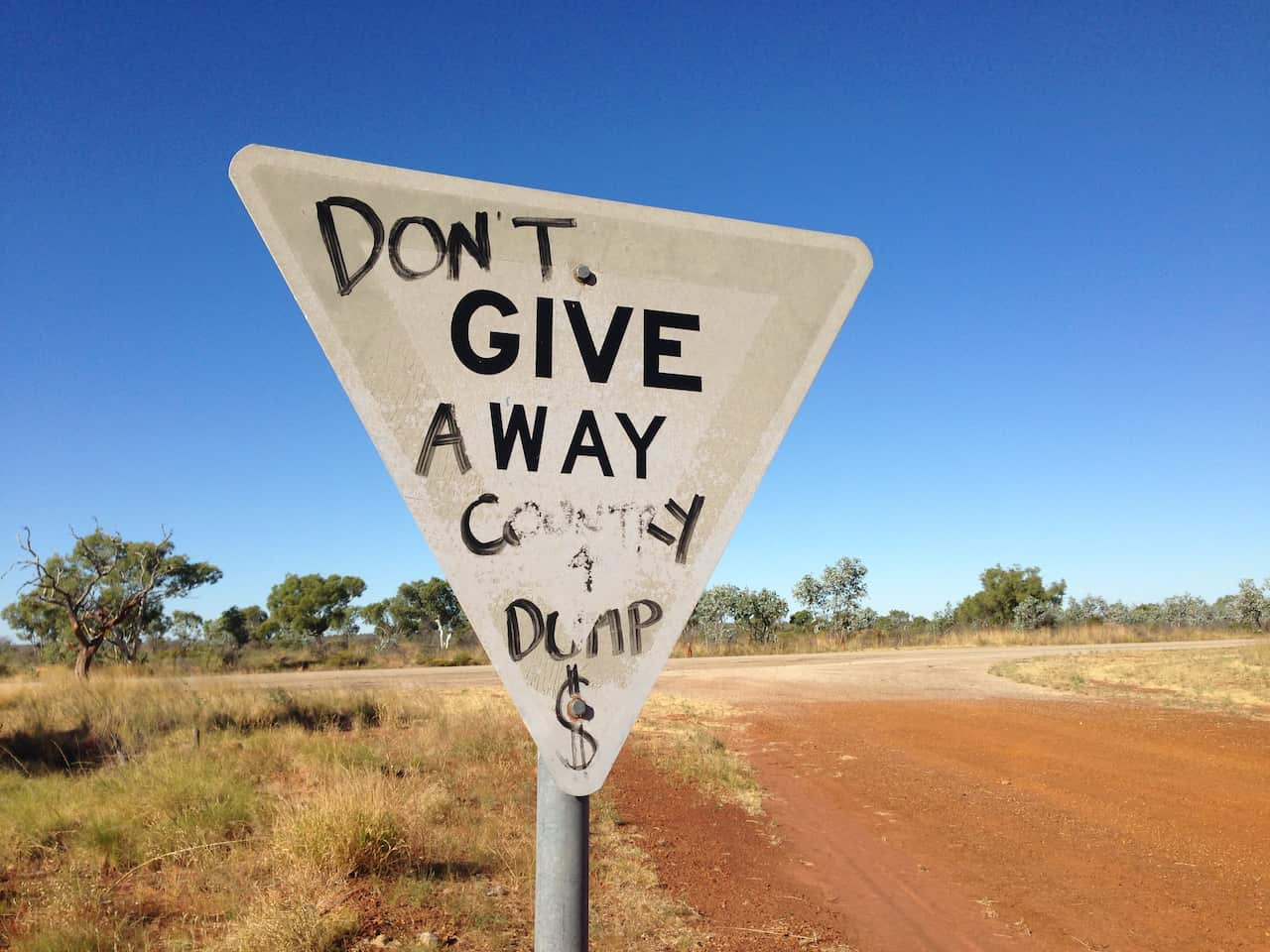The meeting follows Indigenous communities on Friday declaring the ongoing nuclear debate in the country was irrelevant unless they were making the decisions.
Mr Kan told NITV News' Michelle Lovegrove that the Fukushima crisis was still unresolved and that the best place for uranium was in the ground. “It is not possible for human beings to control nuclear technology,” he said.
“I recently had the opportunity to visit the Onkalo repository site in Finland – and it is said that until [waste] reaches a safe level, it is taking up to 100,000 years, and so when we consider that it is so difficult to control such nuclear reactions, these kinds of points need to be kept in mind when considering how to manage this waste.
Three years ago a 9.0 magnitude earthquake, followed by a tsunami, caused a meltdown of the Fukushima No 1 nuclear power plant. High levels of radiation has left more than 200,000 people still living in temporary housing and makeshift shelters.
'Our land is our life'
Indigenous people involved in an Awaken forum with Stan Grant on Friday insisted that the ongoing nuclear debate in the country must stop unless they were heard.
Dianne Stokes, a Traditional Owner of Muckaty, told Awaken’s Stan Grant: "Even if there was a benefit to mining uranium, that doesn't bring any benefit to us." Ms Stokes has been fighting for 10 years to stop her land being used as a nuclear waste dump.
The Federal Government is yet to find a nominated site for a nuclear waste repository since the recent withdrawal of the Muckaty site in the Northern Territory.
The Northern Land Council nominated Muckaty as a site for a dump in 2006, with the community to receive a $12 million benefits package. The deal has been criticised as non-transparent and resulting from insufficient consultation with traditional owners.
"Really, our land is our culture, our land is our life. And we want our land to stay the way it is."

Maurie Ryan, the founder of the First Nations Party, said that mining uranium was not an option because decisions made by the Commonwealth of Australia were invalid unless the truth of colonisation was written into Australia's preamble and Constitution. "To me, this government is illegal and fraudulent under [the] governance of the oldest political system on this planet."
Regarding nuclear waste, he said: “Traditional owners of the affected areas that are proposed for nuclear repositories have to get together – and that has to be funded by the federal government, the federal minister and the minister of mining and energy – sit down and consult, then bring in all [the stakeholders] and explain [reasons] for and against, to the traditional owners as to where repositories are going to be, then I’ll be satisfied.”
Adnyamathanha woman Dr Jillian Marsh, who has researched extensively the South Australian Beverly Uranium Mine at the Batchelor Institute of Indigenous Tertiary Education, said: "Commercial developers, mining companies, government officials, do not understand. They just can't fathom that our land is culture and you cannot put a dollar value on it.
“And that our land is connected to our spiritual understanding of the history of this country, and together those things cannot be broken and neither can our connection with our land.
“When we talk about the damage that the uranium industry is doing to our country, we know that once the [environmental] damage is done, it can’t be undone. Once the underground water tables are contaminated, we can’t restore it.”
Dr Marsh said the mining industry would not take responsibility. "Rehabilitation and restoration is not going to make money for them. And this is what they've told us very clearly…that they're there to make a profit."
Risks from uranium low
However, Professor Ramesh Thakur, director of the ANU Centre for Nuclear Non-Proliferation and Disarmament and former assistant secretary-general of the United Nations, believes that if proper measures are taken, the risks uranium poses to the planet and its people are low.
“Japan, for example, was already an iffy country in which to have nuclear power. It sits on fault lines. It is very prone to earthquakes,” Professor Thakur said.
“Because nuclear power is not good for one country, doesn’t mean that it’s not good for another country. If we can meet the concerns about the environmental damage and waste repository issues, if we can put in sufficient guarantees about the safety and security and weapons potential, it makes sense to be part of nuclear production.”
“However, we need to talk to the people who know the geological and demographics of Australia to determine which are the best sites from a geological point of view, and which are the sites that are important for historical and cultural reasons,” he said.
“It’s a difficult and complicated process – there is a long history of distrust and mistrust in terms of what governments have done in the past. Is it possible to resolve? We’ll see.”
NITV’s Awaken Special “Uranium: Friend or Foe” airs at 9.00pm on NITV (Channel 34) on Wednesday 27 August. Stan Grant moderates the debate featuring traditional Owners of Muckaty Station in the Northern Territory, Dianne Stokes and Kylie Sambo, Pitjantjatjara homelands representatives from the Maralinga area, Rose Lester and Sue Haseldine, and high-profile academics including Dr Jillian Marsh, Professor Eric McFarland and Professor Ramesh Thakur.

